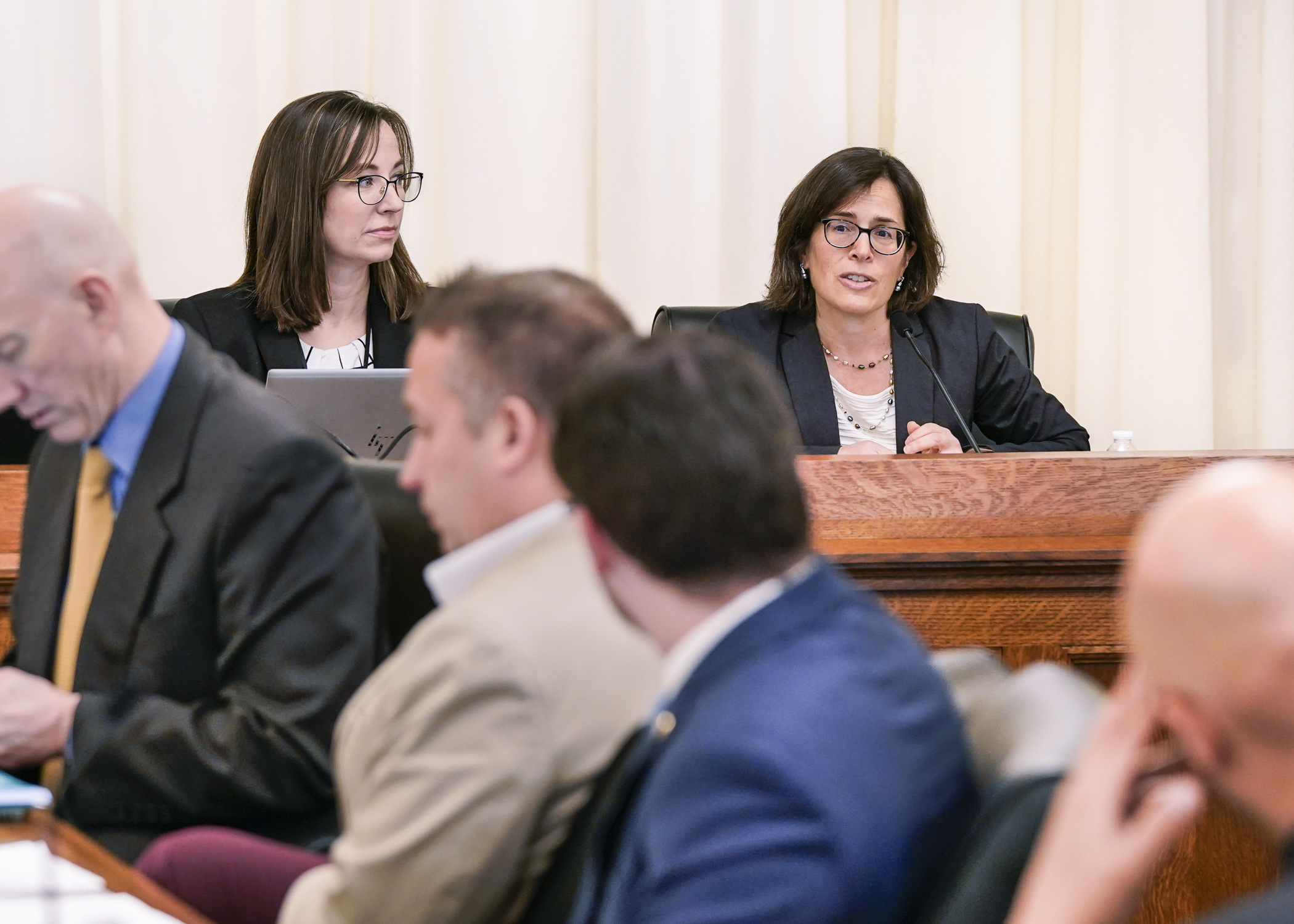House committees scrutinize state’s grant funding processes in aftermath of Feeding Our Future scandal

Pervasive non-compliance with required policies.
That is how the nonpartisan Office of the Legislative Auditor characterized the behavior of state agencies regarding their management of state grant monies in an 80-page report.
“Grants represent an important investment of state funds in Minnesota,” Legislative Auditor Judy Randall told a joint hearing of the House Education Finance and Children and Families Finance and Policy committees Wednesday. “We have consistently found that agencies have not complied with state grant management policies.”
“I am at a loss of words,” said Rep. Natalie Zeleznikar (R-Fredenberg Township). “We are delivering grant money in a noncompliant way with zero accountability.”
The office investigated grant management practices at two state agencies — the Department of Education and the Department of Public Safety. While the office developed course-correcting instructions for each department, it also took a broader view. Randall shared recommendations with the committee that she would like to see implemented by all state agencies.
The audit comes on the heels of the Feeding Our Future scandal — a $250 million fraud scheme allegedly committed by a nonprofit based in St. Anthony. Though this constituted a misuse of federal pandemic aid, it spurred the OLA to investigate how state agencies are managing grants funded with state dollars.
Before laying out the report’s key finding, Deputy Legislative Auditor Jodi Munson Rodriguez provided background information for committee members.
An average of $500 million in state grants was allocated annually over the last five fiscal years. State agencies disbursed this money to around 2,400 nonprofit organizations. Responsible for overseeing this process across state agencies is the Office of Grants Management.
However, something has gone awry.
Rodriguez said that office was found to follow only 17 of the 24 best practices in grants management, and those practices often lacked needed details for proper implementation when conveyed to state agencies. The OLA report provided recommendations for the grants management office to strengthen its oversight functions considering these findings.
But even when the office is up to its assigned task, state agencies are falling short of abiding by its required policies.
The OLA audited 16 grants awarded by the Department of Education and 23 grants by the Department of Public Safety during fiscal years 2020-21. This revealed substantial issues: the Education Department made payments in excess of $4 million to grantees in violation of some policies, while the Public Safety Department did the same for payments of almost $580,000.
This pervasive noncompliance with grants management policies has been observed over successive evaluations, with issues seen around conflict-of-interest documentation, pre-award financial reviews, progress report collection, and site visit monitoring.
Rodriguez pointed out several factors affecting compliance at state agencies, namely a lack of resources, training, and tools to properly manage grants. She recommends that the Legislature require the Office of Grants Management to develop a training program and require state agency staff to complete this training.
Representatives from the Department of Education were on hand to respond to the OLA’s findings.
Denise Anderson, the department’s chief financial officer, said several actions have already been taken to improve grant management. Namely, they are carrying out specific recommendations around documentation and site visits. They are also implementing an updated grant management training program – 100 department staff have received the training thus far.
The department also has a July 2023 goal for rolling out a grant management manual and toolkit, and a March 2023 goal for building up a centralized, electronic grant filing system to replace their mostly paper-based system.
The department believes more funding would be necessary to improve grant management long term. Anderson noted the governor’s budget recommendations contain funding requests to strengthen oversight of these activities. She mentioned a $2 million annual appropriation for a departmental Office of Inspector General and $800,000 for audit and internal control resources.
A key issue raised during testimony and member discussion revolved around legislatively named grants. This is when a bill is passed that specifically names a grant recipient and allocates a defined amount of money to the grantee.
After a back and forth with Rep. Dave Pinto (DFL-St. Paul), Randall confirmed that while an agency can temporarily withhold money from a grantee in violation of grants management policies, they must eventually provide the grant money as spelled out in state statute. She further mentioned that the OLA has recommended against utilizing this grant-funding mechanism in the past due to the risks involved, but the Legislature chose to press ahead anyway.
Related Articles
Search Session Daily
Advanced Search OptionsPriority Dailies
Speaker Emerita Melissa Hortman, husband killed in attack
By HPIS Staff House Speaker Emerita Melissa Hortman (DFL-Brooklyn Park) and her husband, Mark, were fatally shot in their home early Saturday morning.
Gov. Tim Walz announced the news dur...
House Speaker Emerita Melissa Hortman (DFL-Brooklyn Park) and her husband, Mark, were fatally shot in their home early Saturday morning.
Gov. Tim Walz announced the news dur...
Lawmakers deliver budget bills to governor's desk in one-day special session
By Mike Cook About that talk of needing all 21 hours left in a legislative day to complete a special session?
House members were more than up to the challenge Monday. Beginning at 10 a.m...
About that talk of needing all 21 hours left in a legislative day to complete a special session?
House members were more than up to the challenge Monday. Beginning at 10 a.m...